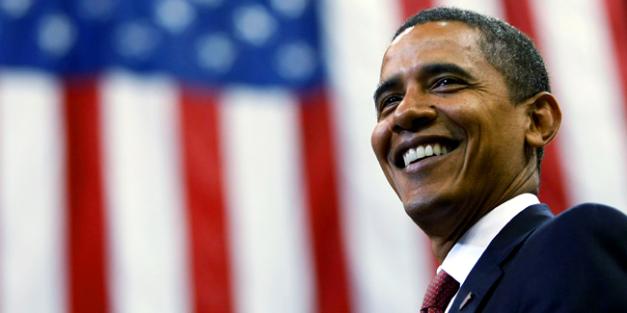A Grand Bargain
Posted on May 17, 2011
 The single best thing President Obama could do to ensure his reelection is sign a bill that would cut Medicare.
The single best thing President Obama could do to ensure his reelection is sign a bill that would cut Medicare.It wouldn’t hurt if the bill included some tax increases, defense cuts and perhaps a plan to reform Medicaid.
I know that sounds absurd, and I guarantee campaign consultants are laughing at me right now, but the fact of the matter is that a global budget deal will help Obama win reelection.
Sure, it would help position him in the center of the political spectrum, but more importantly, such a global budget deal would help spur the economy, create jobs and provide more certainty to the marketplace.
The president has been content to let House Republicans get out in front of the budget issue, cynically assuming that they will fall flat on their collectives faces, thus giving Democrats a chance to storm back a year from November.
The problem with that strategy is it doesn’t fix one of the biggest problems that bedevils the economy: our nation’s impending bankruptcy.
The trustees’ report on Medicare and Social Security reaffirmed the grim news last Friday. The two biggest entitlement programs are going broke faster than anticipated.
The trustees paint a bad picture long-term, but the broader fiscal outlook has short-term ramifications. The collapse in the value of the dollar, the specter of rampant inflation, the increased possibility of a double-dip recession and the continuing problems that face the housing market are all connected to our national debt picture.
If the president continues to choose to ignore that reality and play tactical games with the budget, he takes an enormous political risk.
Bad policy decisions make for bad politics. Both former Presidents Gerald Ford and Jimmy Carter offered insufficient answers to the twin evils of inflation and high interest rates, and both failed in their efforts to hold onto the White House. Former president Lyndon Johnson decided to pursue both guns and butter, and the resulting jump in inflation and interest rates (as well as an increasingly unpopular Vietnam War) led to his decision not to seek reelection.
Good and courageous leadership usually leads to safer political waters. When President Reagan signed into law bold Social Security reforms, he cruised to reelection in 1984. When Bill Clinton signed into law a balanced-budget package that included welfare reform and Medicare cuts, he too had an easy time of it in his reelection bid. Dwight Eisenhower moved to the political center in 1995, pursuing a balanced budget in the face of a hostile Democratic Congress, and he likewise had no problems getting reelected.
The one notable exception to this rule was the budget agreement signed by George H.W. Bush in 1990, although Bush’s failure to win reelection had less to do with the fallout from the deal and more to do with a president who didn’t have a domestic agenda after the conclusion of the first Gulf war.
Failure to act on a grand budget deal would be politically catastrophic for Obama. While his Treasury secretary has painted a vivid picture of what would happen to the country if the debt limit is not extended, Timothy Geithner has ignored what would happen to the bond markets should the Congress extend the debt by a couple of trillion dollars without taking any steps to deal with the government’s spending problem.
The president’s men haven’t made the case for a budget deal because the president himself hasn’t shown much interest in taking a leadership role in that debate.
But the lessons of history would indicate that failing to deal on budget matters is far more politically risky than boldly leading the country to fiscal responsibility. The president might not want to sign a grand bargain that include cuts to Medicare and Medicaid, but if he does so, he might just ensure his own reelection.
